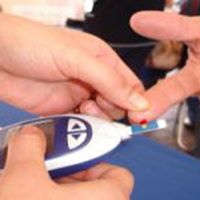Diabetic Neuropathy: RAAS Blockade Has Limits
Since one-third of patients with diabetes develop neuropathy, prevention and management are top concerns for endocrinologists.

Since one-third of patients with diabetes develop neuropathy, prevention and management are top concerns for endocrinologists.
Currently, the primary approach to slow nephropathy progression is to address the renin-angiotensinaldosterone system (RAAS). Guidelines have changed to include new findings about RAAS blockade. In the past, they've recommended RAAS blockade in all patients. Better evidence now shows that only patients with albuminuria at or exceeding 300 mg/day (formerly called microalbuminuria) are likely to derive benefit.
A review article in the April 2016 issue of Current Diabetes Report discusses RAAS blockade from every angle. A significant issue is the likelihood of chronic kidney disease (CKD) comorbid with diabetic neuropathy. A side effect of RAAS blockade is hyperkalemia, which restricts their use in patients whose glomerular filtration rates are lower than 45 mL/min/1.73 m2.
Using RAAS blocking agents in certain patients can worsen renal outcomes. RAAS inhibition is no longer indicated for normotensive and normoalbuminuric individuals. In addition, studies have looked at diabetic patients with hypertension who were either normoalbuminuric or had high albuminuria.
They found that regardless of whether a RAAS blocker or calcium channels blocker are employees, aggressive management of blood pressure slowed neuropathy.
Most studies have failed to demonstrate any benefit from combining drugs that block RAAS.
The authors discussed ACE inhibition + ARB, and spironolactone + ARB. Acute kidney injury, hypotension and hyperkalemia are concerns.
When hyperkalemia becomes a problem in RAAS-treated patients, many prescribers reduce the dose of the RAAS blocker.
This decreases efficacy.
One potential approach to using RAAS blockers in patients with advanced CKD might be addition of a drug that binds excess potassium in the colon.
New potassium-binding agents may allow patients to continue full-dose RAAS inhibition. Patiromer, FDA-approved since October 2015, is one such drug. Others are in the development pipeline.
Studies will be needed to determine if the benefits of RAAS blockade seen might extend to patients with stages 4 and 5 CKD.